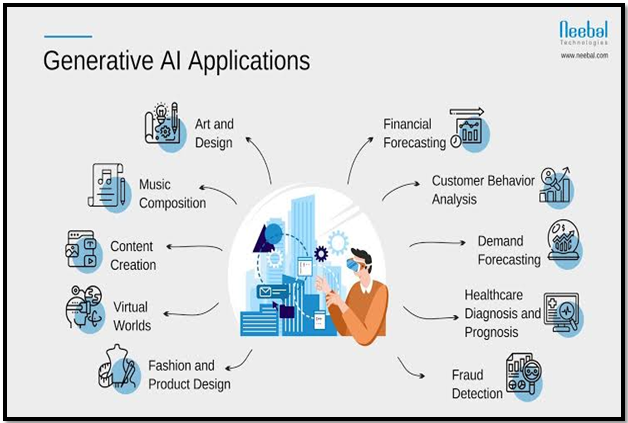DIGITAL JURISPRUDENCE IN INDIA, IN AN AI ERA
Syllabus:
GS 3:
- Artificial Intellegence
- Awareness in the fields of IT, Space, Computers, Robotics, Nano-technology, Bio-technology
Focus:
- Generative AI’s rapid advancements pose profound legal and ethical challenges in India’s digital landscape.
- From liability fixation to copyright complexities, existing frameworks struggle to keep pace with AI’s capabilities, prompting urgent discussions on regulatory adaptations and ethical standards.
Source: freebal
| What is Digital Jurisprudence?
Digital jurisprudence refers to the legal principles and frameworks that govern the use of digital technologies and the internet. It encompasses laws, regulations, and judicial precedents addressing issues such as privacy, data protection, intellectual property, cybercrime, and the ethical use of artificial intelligence in the digital age. |
Safe Harbour and Liability Fixation
- Intermediary Liability: Existing laws like Section 79 of the Information Technology (IT) Act provide safe harbour for intermediaries, but application to Generative AI (GAI) tools is unclear.
- Conduit vs. Platform: Courts struggle to classify GAI tools as intermediaries or mere conduits due to their active role in content generation.
- Legal Precedents: Cases like Christian Louboutin Sas vs Nakul Bajaj highlight challenges in applying safe harbour protections to GAI outputs.
- International Cases: Lawsuits abroad, such as against OpenAI, showcase global legal disputes arising from GAI-generated content.
- User Reposts: Liability complexities arise when users repost GAI-generated content on other platforms.
The Copyright Conundrum
- Existing Provisions: Indian Copyright Act doesn’t explicitly cover AI-generated works, posing challenges for legal protection.
- Co-Authorship Debate: Should AI-generated works require human co-authorship for copyright protection?
- Ownership Attribution: Issues around who owns the copyright—user, AI, programmer—remain unresolved.
- Enforcement Challenges: Difficulty in enforcing copyright against AI tools due to unclear liability attribution.
- Privacy Concerns: Impact of AI on privacy rights under the Digital Personal Data Protection Act, 2023.
Privacy and Data Protection
- Right to Erasure: Challenges in implementing “right to be forgotten” for information absorbed by GAI models.
- Data Control: Lack of mechanisms to revoke personal data embedded in AI models post-training.
- Privacy Jurisprudence: Influence of K.S. Puttaswamy judgment on handling personal data in AI contexts.
- Regulatory Gaps: Need for specific regulations addressing AI’s impact on personal privacy and data control.
- Ethical Considerations: Balancing AI innovation with individual privacy rights.
| Digital Personal Data Protection (DPDP) Act, 2023
Overview:
Applicability:
Key Stakeholders:
Other Provisions:
|
Policy Recommendations
- Sandbox Approach: Temporarily immunize GAI platforms to foster responsible development and gather legal insights.
- Data Rights: Ensure legal compliance in data acquisition, including licensing and compensation for data used in AI training.
- Licensing Solutions: Explore centralized platforms for licensing AI training data, similar to music copyright societies.
- Regulatory Overhaul: Update digital jurisprudence to accommodate AI advancements and protect user rights.
- Judicial Guidance: Constitutional courts to interpret laws judiciously to maximize AI benefits while safeguarding individual rights.
Ethical and Bias Challenges in AI
- Bias in Training Data: Addressing biases embedded in AI models due to skewed or incomplete training datasets.
- Algorithmic Transparency: Ensuring transparency in AI decision-making processes to uphold ethical standards.
- Human Oversight: Implementing mechanisms for human oversight in AI systems to mitigate ethical risks.
- Fairness and Accountability: Establishing frameworks to ensure AI systems operate fairly and are accountable for their decisions.
- Impact on Vulnerable Groups: Assessing and mitigating the disproportionate impact of AI technologies on vulnerable communities.
Desired Regulatory Frameworks for AI Adoption
- Regulatory Gaps: Identifying and addressing gaps in existing laws and regulations to accommodate AI technologies.
- International Standards: Harmonizing Indian regulatory frameworks with global standards on AI governance.
- Sector-Specific Regulations: Developing specialized regulations for different sectors adopting AI, such as healthcare and finance.
- Ethics Boards: Establishing ethics boards or committees to guide AI development and deployment.
- Public Consultation: Involving stakeholders and the public in the formulation of AI policies and regulations to ensure inclusivity and transparency.
Way Forward:
- Comprehensive Legislation: Develop specialized legislation addressing AI’s unique challenges, including liability, privacy, and intellectual property, with input from stakeholders and legal experts.
- Ethics Guidelines: Establish clear ethical guidelines for AI development and deployment, emphasizing transparency, accountability, and fairness in algorithms and decision-making processes.
- Capacity Building: Invest in training programs for legal professionals and judiciary on AI technologies and their legal implications to ensure informed decision-making.
- International Collaboration: Foster partnerships with global bodies and countries to harmonize AI regulations, share best practices, and address cross-border challenges.
- Public Awareness: Conduct awareness campaigns to educate the public about AI’s capabilities, risks, and rights, promoting informed consent and user empowerment.
- Regulatory Sandboxes: Implement regulatory sandboxes to facilitate safe testing environments for AI innovations while gathering insights for regulatory improvements.
- Data Governance: Enhance data governance frameworks to ensure responsible data use, privacy protection, and mitigation of biases in AI algorithms.
- Monitoring and Adaptation: Establish mechanisms for continuous monitoring of AI applications, adapting regulations swiftly to keep pace with technological advancements and societal needs.
Conclusion
Navigating Generative AI’s legal complexities requires robust frameworks that balance innovation with ethical considerations. India must urgently enhance its regulatory landscape to foster AI development while safeguarding rights and addressing biases. The path forward demands proactive legislative measures and global collaboration to harness AI’s potential responsibly.
Source:The Hindu
Mains Practice Question:
Discuss the legal and ethical challenges posed by Generative AI in India. How can the regulatory framework be strengthened to ensure ethical use while fostering innovation?
Associated Article:




